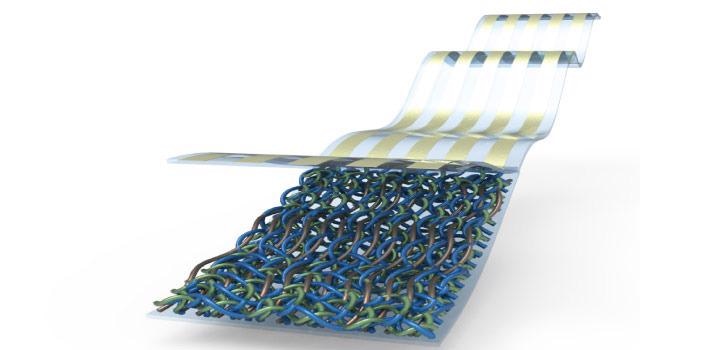Jan 6 2021
A possible solution in the quest for an energy source that does not affect the planet is sunlight. However, this relies on discovering a method to effectively convert electromagnetic energy into electricity.
 Adding diquat, a known herbicide, as a dopant enhances the conversion efficiency of high-performance organic solar cells. Image Credit: © 2021 Yuanbao Lin.
Adding diquat, a known herbicide, as a dopant enhances the conversion efficiency of high-performance organic solar cells. Image Credit: © 2021 Yuanbao Lin.
Scientists from King Abdullah University of Science and Technology (KAUST) have demonstrated how a known herbicide can enhance this transformation in organic devices.
Although solar cells have conventionally been developed from inorganic materials like silicon, organic materials are now emerging as an alternative since they are flexible, light and comparatively economical to produce, even providing the likelihood of printable manufacture.
If organic photovoltaics are to be used as a viable substitute for fossil fuels, they should exhibit enhanced efficiency in transforming the fraction of incident solar energy into electrical energy. The most important aspect for achieving this is to select the correct combination of materials.
Yuanbao Lin, a PhD student, and Thomas Anthopoulos have currently realized this by developing 'an efficient molecular dopant to improve the performance and stability of organic solar cells.'
A majority of the photovoltaic devices have two essential elements: a p-type region and an n-type region, named so since each region has a net positive and negative electric charge, respectively. Such charges can be obtained by adding impurities to the semiconductor. An impurity that makes an n-type material is called a donor, whereas an acceptor impurity creates a p-type material.
Lin, Anthopoulos and their colleagues made use of diquat (C12H12Br2N2) as a molecular donor dopant to improve the conversion efficiency of high-performance organic solar cells.
The researchers added the dopant to two organic material systems that have earlier exhibited higher photovoltaic performances. In one of the systems, the power conversion efficiency was enhanced from 16.7% to 17.4% and in the other one, the researchers could achieve an optimum efficiency of 18.3%.
Such enhancements were feasible since the molecular diquat dopant increased both the optical absorption of the materials and the lifetime of the electrical charges when the light was absorbed.
Similar to several organic n-type dopants, diquat tends to react in an ambient atmosphere; due to its lack of stability, its use as a molecular dopant has been impossible until now. But the KAUST researchers could develop a process that made stable, neutral diquat by electrochemically decreasing charged diquat, which remains stable in air.
This potential makes diquat a prospective choice for the future generation of organic solar cells.
"The predicted maximum efficiency of the organic solar cell is around 20 percent. We will try our best to reach this."
Yuanbao Lin, PhD Student, King Abdullah University of Science and Technology
Journal Reference:
Lin, Y., et al. (2020) A Simple n-Dopant Derived from Diquat Boosts the Efficiency of Organic Solar Cells to 18.3%. ACS Energy Letters. doi.org/10.1021/acsenergylett.0c01949.